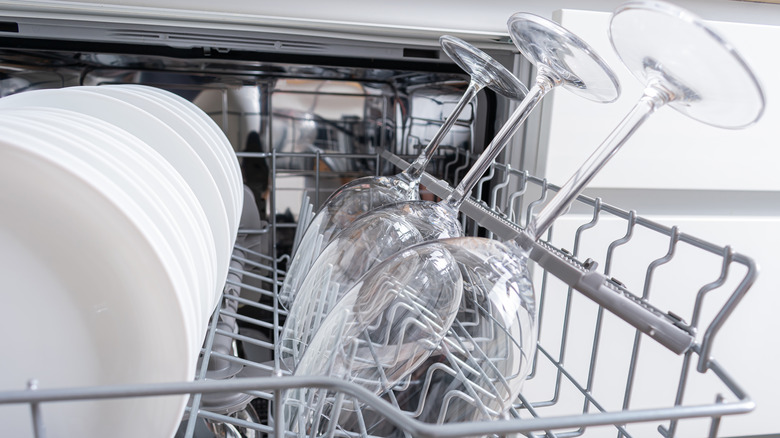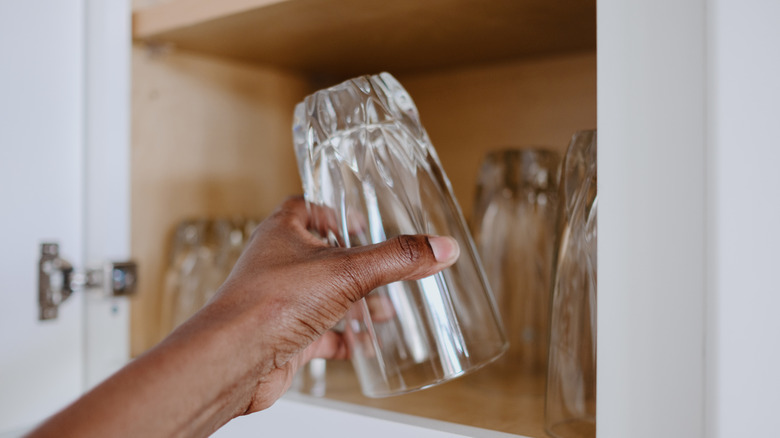The Dishwasher Mistake That's Sabotaging Your Glassware
Dishwashers have simplified clean-up after big and little meals. Let's face it: Few people like to wash and dry dishes by hand, and this appliance gives you permission to pass the buck. Still, there are plenty of costly mistakes people make when loading the dishwasher, especially regarding glassware and stemware. According to Jill Koch, owner of Jill Comes Clean, glassware often faces issues in the dishwasher. Koch, who often shares cleaning tips on her Instagram and YouTube pages, exclusively told Chowhound, "People will often either put glasses that are too delicate or shouldn't be in the dishwasher in there[,] or they load them on the bottom rack when they should go on the top rack."
That's why it's imperative to check to see if your glassware is dishwasher-safe before loading it into this appliance. Additionally, confining glasses to that top rack is a protective measure. Because stemware is fragile, it needs a softer jet spray, or it is at risk of moving around, cracking, and breaking on that bottom shelf.
This is also why Koch recommends using the holders in your appliance. She explained, "If washing wine glasses in the dishwasher[,] use the holders that most dishwashers have to secure them. If yours doesn't have that[,] you can buy holders to add to the top rack for wine glasses with stems." But there are other nemeses that can plague your glasses when washing them in the dishwasher — Koch has tips for dealing with these, too.
More dishwasher tips for glassware
Hard water is the enemy of your champagne flutes, coupes, snifters, and etched glassware and can leave an unsightly residue; so can cheap detergent, or not using a rinse aid. Cleaning guru Jill Koch explained that if you don't want your glasses to fall victim to these common streak-forming culprits, you should take action. She suggests making sure you're using enough rinse aid in your dishwasher's dispenser. The quality of your cleaning fluids matters, too, both that of your rinse aid and your detergent. Koch also recommends setting up a water softener if you have hard water, which contains minerals that can accumulate not only on dishes and dishwashers but also in showers.
If you've taken all these steps and your glasses are still turning cloudy or their surfaces have aged significantly after going through the dishwasher, consider what cycle you're using. While there's some division over whether or not you should avoid rinsing dishes before putting them in the dishwasher, using the correct cycle is not up for debate. The "normal" cycle may be the go-to for your day-to-day cleanings, but there are other settings for a reason, and you do not want to use the normal cycle when washing your glassware and stemware.
The normal and heavy-duty cycles use higher temperatures; the latter, especially, should be reserved for casserole dishes, pots, and pans that have a buildup of food residue. When washing glasses, opt for the delicate cycle, which uses a lower temperature to protect these fragile items. And don't forget to clean your dishwasher with baking soda and vinegar from time to time. This will also keep your glasses sparkling and streak-free.

